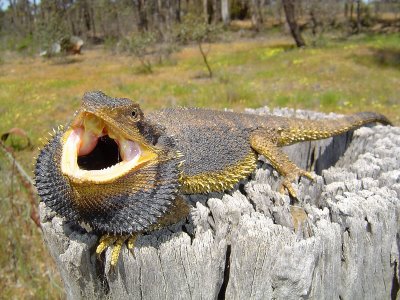Why is My Bearded Dragon Not Eating? Common Reasons and Solutions
Introduction
Bearded dragons are among the most popular pets to keep as companions. They are low maintenance and display fascinating behavior, making them great for the beginner pet owner. However, when your bearded dragon is not eating, it can be concerning. In this blog post, we will explore the common reasons why your bearded dragon may have stopped eating and discuss solutions to get your pet eating again.
1. Brumation
Brumation is a natural process that happens with bearded dragons in the wild. During this period, the reptile enters a state of dormancy to conserve energy during the winter months. Brumation can last from a few weeks to several months, and during this time, your bearded dragon may not eat at all. If your bearded dragon is exhibiting brumation behavior, such as sleeping for long periods, staying still, or hiding, there is no need to worry. They will return to their normal eating behavior when they are ready.

2. Temperature and Lighting
Bearded dragons require specific temperatures and lighting conditions to thrive. If the temperature in their enclosure is too low, they may not be able to digest their food properly, leading them to lose their appetite. Similarly, if they do not receive enough UVB radiation from their lighting, they may become lethargic and stop eating.
Ensure that your bearded dragon’s basking spot is around 100-110°F and the cool side of their enclosure is around 80-85°F. Use a thermometer to accurately measure the temperature. Make sure to also provide a UVB bulb and replace it every 6-12 months. Check that the bulb is within the recommended distance from your bearded dragon to ensure they are receiving enough UVB radiation.

3. Poor Diet
Bearded dragons require a balanced and varied diet to stay healthy. If they are not receiving the right nutrients, they may lose their appetite. Bearded dragons are omnivores and require both protein and vegetables in their diet.
Feeding them insects such as crickets, mealworms, and dubia roaches provides them with protein. You can also feed them small pinky mice occasionally. Offer vegetables such as collard greens, kale, and squash daily.

4. Illness
If your bearded dragon is not eating, it could be a sign of illness. Respiratory infections and parasites are common in bearded dragons and can affect their appetite. Other signs of illness include lethargy, diarrhea, and weight loss. If you suspect your bearded dragon is ill, take them to a reptile veterinarian for treatment.
5. Stress
Bearded dragons can become stressed by changes in their environment, such as a new enclosure, new pets, or a change in routine. Stress can cause them to stop eating and exhibit unusual behavior. If you suspect your bearded dragon is stressed, try to determine the cause and make adjustments to their environment.

Conclusion
If your bearded dragon is not eating, it is important to determine the cause and take action to ensure they receive the proper care they need. Common reasons for not eating include brumation, temperature and lighting issues, a poor diet, illness, and stress. By following the solutions outlined in this blog post, you can get your bearded dragon eating again and ensure they remain healthy and happy pets. Remember, prevention is key. Providing a proper diet and a comfortable environment will help prevent your bearded dragon from experiencing health issues in the first place.
